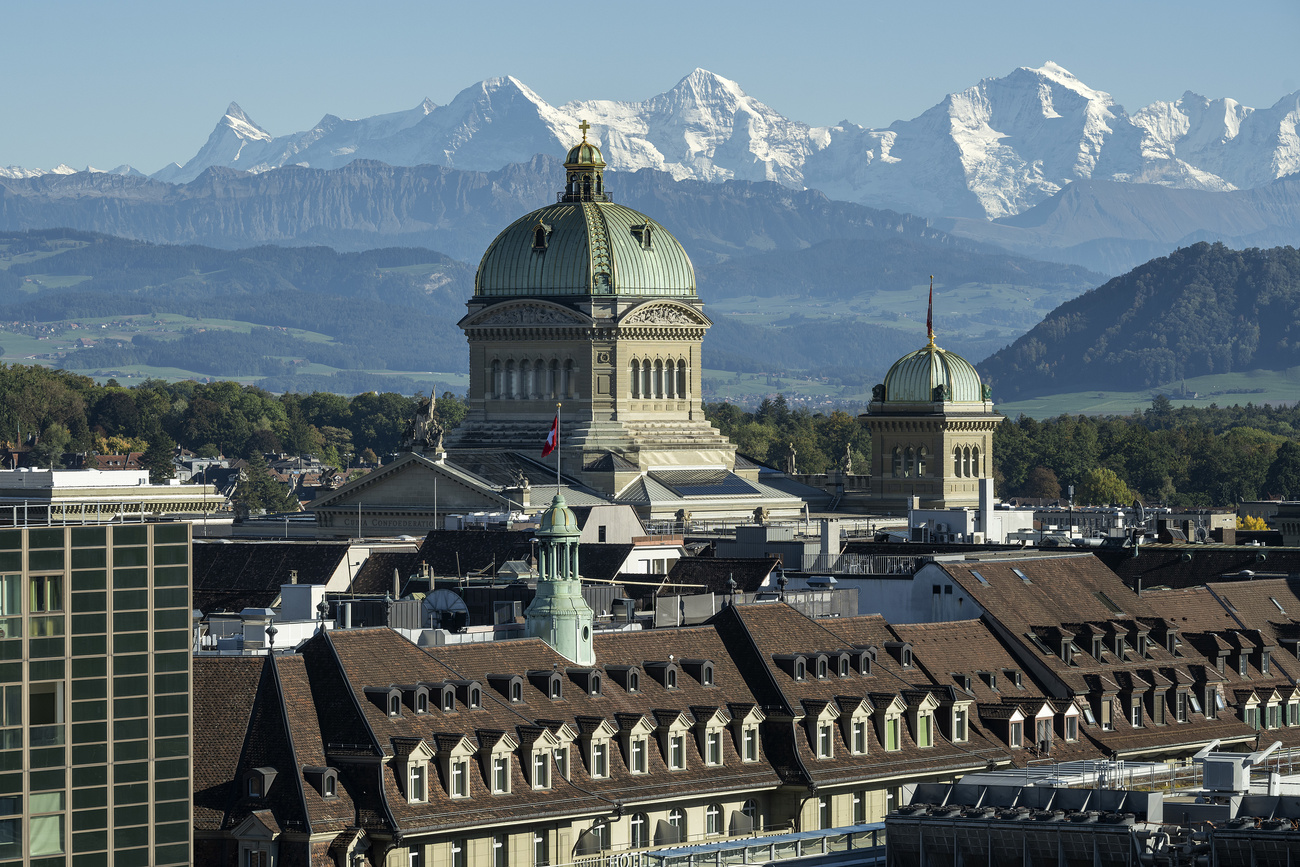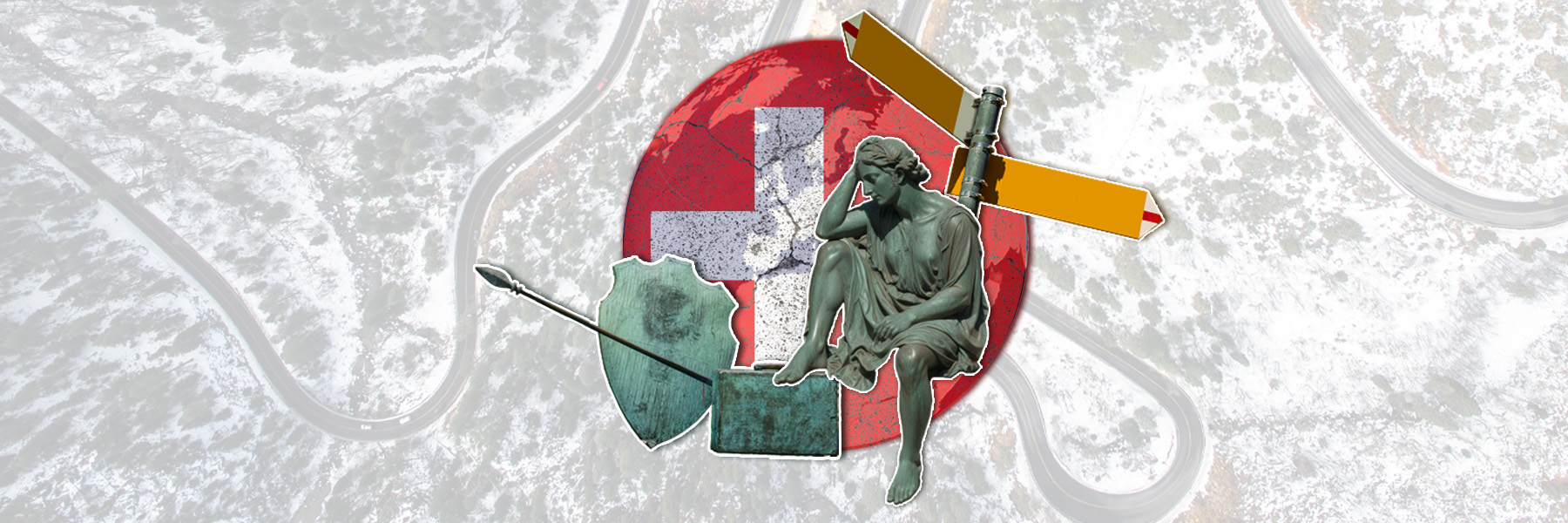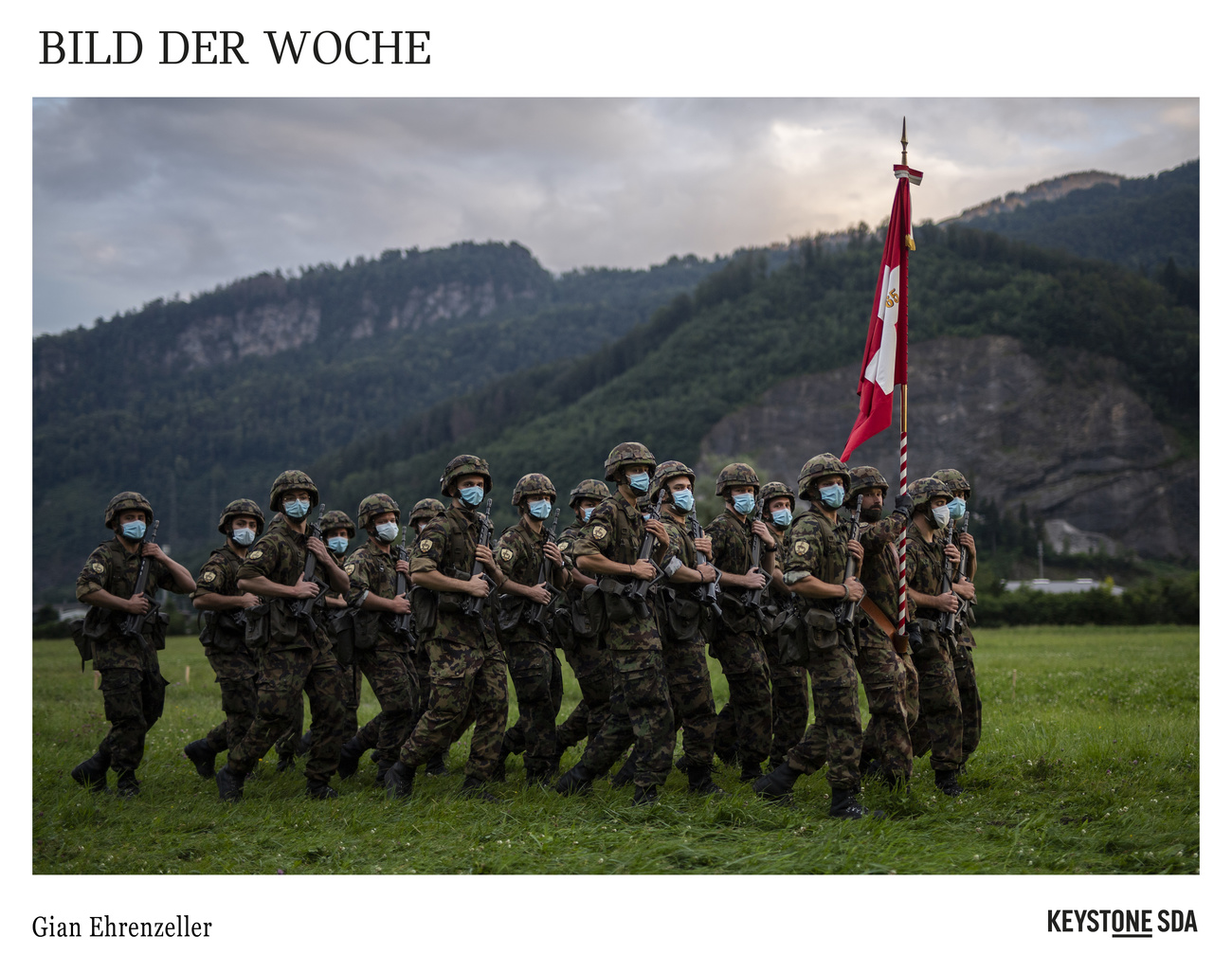
Swiss neutrality policy to remain unchanged

Switzerland will not change its policy of political neutrality despite Russia's invasion of Ukraine, the government has confirmed.
The seven-member government agreed that Switzerland’s current approach as defined in 1993 remains valid and should not be adapted in the wake of the Ukraine war.
The government said in a report adoptedExternal link on Wednesday that Switzerland’s current neutrality practice “provides sufficient scope to use neutrality as an instrument of Swiss foreign and security policy in the present international context”.
The government had examined Swiss neutrality in the light of the war in Ukraine and in response to a question by the Senate foreign affairs committee. The cabinet discussed the issue in September.
Russia’s invasion of Ukraine has forced Switzerland to explain its neutrality. The Alpine nation has parted with past practice and adopted European Union sanctions designed to punish Russia for invading Ukraine.
In response, Russia classified Switzerland as an unfriendly country. In August it rejected a protecting power mandate agreed by Switzerland and Ukraine, saying Switzerland was no longer neutral.

More
What does the future hold for Swiss neutrality?
Meanwhile, in Switzerland a domestic debate rages over how to interpret neutrality policy with two opposing camps.
One is conservative, mainly represented by the rightwing Swiss People’s Party, and wants to keep to a strict interpretation of neutrality. It is planning a people’s initiative that would incorporate comprehensive neutrality into the Swiss constitution.
The opposing, more liberal camp, which represents a majority of the government, is pushing for a more active role in international politics.

More
Switzerland will remain neutral – until it’s attacked
Switzerland’s current policy of neutrality means it doesn’t take part in armed conflicts and doesn’t support any warring party. As a neutral country it also acts as diplomatic go-between when states partially or fully break off relations.
However, Switzerland no longer sees neutrality as blindly going it alone. This is why for some time it has maintained military partnerships with the Western defence alliance NATO and with its neighbouring countries.
More

In compliance with the JTI standards
More: SWI swissinfo.ch certified by the Journalism Trust Initiative





























You can find an overview of ongoing debates with our journalists here . Please join us!
If you want to start a conversation about a topic raised in this article or want to report factual errors, email us at english@swissinfo.ch.